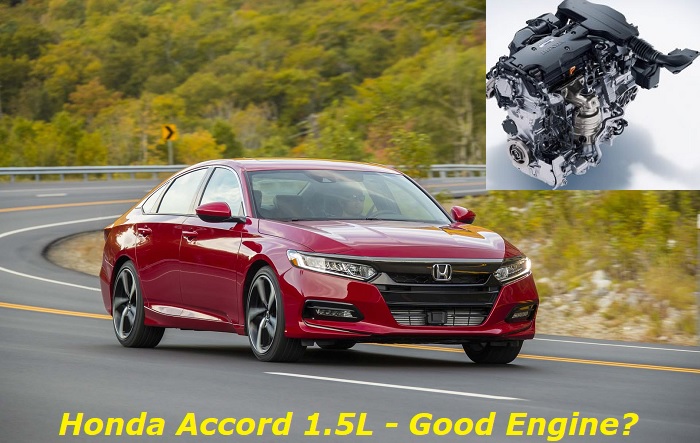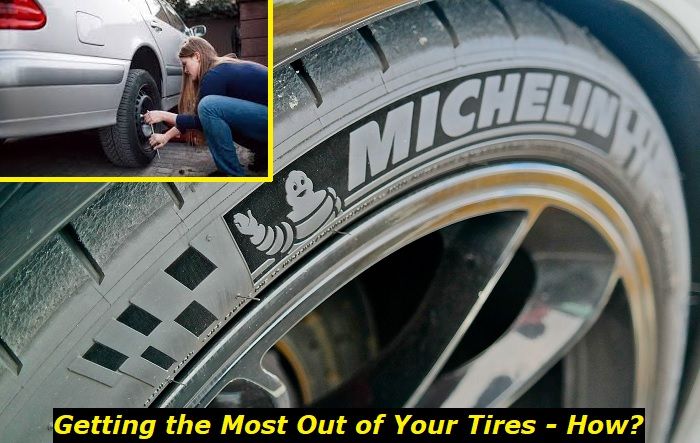The Accord family of Honda remains strong in the market from its introduction in 1976 to the present. The midsize sedan remains popular among buyers despite the shift in overall preference to bigger vehicles nowadays, specifically crossovers and full-size SUVs. The 2018 model in particular has been widely praised by buyers during its launch and is still gaining a lot of attention in the used car market today. It is generally known for its spacious and lavish interior, sporty handling, and a plethora of standard safety equipment.
The 2018 Accord is offered with 1.5L and 2.0L turbocharged engines. While the 2.0L version has received high approval from the general public for its power and fuel efficiency, the consensus on the 1.5L L15BE is somewhat mixed due to plenty of issues raised by buyers. This article will especially focus on the common problems that trouble users of the lower-trim engine.

Key features and my opinion about the engine
- Production years:2017-now
- Average lifespan of L15BE:160,000-180,000
- Fuel supply type:direct injection
- Power range:190-192 hp
- Fuel efficiency:good
- Engine block material:aluminum
- Engine reliability score:medium
- The most common problems:ignition system problems, turbocharger issues, extensive wear due to aggressive use.
Most Common Complaints about the 2018 Honda Accord 1.5L Turbo Engine
Owners of the 2018 Accord 1.5L turbo do not enjoy the same perks that the range-topping version offers. Aside from the obvious displacement difference that plays a major factor in their overall output, the 1.5L is left behind by some key features present in the 2.0 such as engine cover, heated seats, blind spot monitoring, keyless entry, and higher-quality materials for engine bay components. The same unit is also considered to be less reliable than the 2.0L for several reasons.
A key factor contributing to the negative outlook of the 1.5L turbo engine has to do with the problems that it is prone to. According to a lot of 2018 Accord 1.5L turbo owners, these are the most common issues that they had to contend with the power unit:
1. Oil Dilution
The most known problem with the 1.5L turbo engine powering the 2018 Accord is oil dilution. This is supposed to be normal in an aging car, but considering that the 2018 Accords on our roads now are only four years old as of 2022, this shouldn't be happening just yet. Many people affected by this said that they encountered the issue as early as 40,000 miles in their clock.
Honda actually tried to remedy the situation in the post-2018 models of the 1.5L Accord but the solution only came by as an update on the ECU to recalibrate the operation of the fuel injectors. It involved lessening the amount of fuel sprayed by the injectors during the cold. However, such an effort failed to eliminate the problem altogether and it was merely seen as a mitigating measure.
As a result, owners were pretty much dismayed with the decision of Honda in handling the issue because they thought a recall to replace the parts in question should have been the more suitable call. The failure of the company in taking the more expensive approach may have saved them from repair expenses, but it came at the cost of consumer confidence in the 2018 Accord 1.5L Turbo. Thus, this particular model remains notorious for oil dilution troubles up to this day.
Oil dilution in turbocharged engines can have a significant impact on the car's overall performance and other engine elements. It occurs when gasoline is drawn into the crankcase during operation and mixed with the oil. This can cause the viscosity of the oil to increase in the motor, which can lead to increased wear on engine components, decreased fuel economy, strange noises in the engine, and reduced power output. In severe cases, it can cause overheating and engine failure.
As for the case of the 2018 Accord 1.5L Turbo, this is triggered by the fuel injectors spraying too much gasoline, which tends to accumulate in the system. This can turn out to be more problematic during winters wherein the amassed volume of fuel will have a harder time completely burning up. The accrued gas will then overflow and reach the piston seal rings that were also infamous for not sealing properly. Eventually, the fuel will leak into the oil and will create a sludge-like compound that will bring in plenty of lubrication issues.
Oil dilution is very common in turbocharged engines due to the higher temperatures and pressures they operate at. To avoid this problem, it is important to check the oil level and quality regularly and top it off or change it as needed.
Should you start noticing the symptoms mentioned here, you should bring your car to a qualified mechanic right away for repairs. The possible solution here can be as simple as cleaning and flushing down the contaminated oil. On more serious occasions, the ECU may need to be calibrated. Likewise, the faulty parts will have to be replaced, including the fuel injector, piston ring seals, and any other engine component that may have been damaged due to the lubrication problems. The worst that could happen here is your engine totally going bonkers wherein you will have no choice but to have it rebuilt or replaced, or if the overheating has resulted in fire, then it will spell a write-off for your car.
2. Turbo Failure
Another problem hounding the 1.5L variant of the 2018 Accord is turbocharger failure. This can also occur as low as the 40,000-mile mark.
When the turbocharger fails in the 2018 Honda Accord 1.5L Turbo, it can force the engine to stop working or it will prevent it from starting up. Overheating can also be another repercussion of the problem. If you're driving and the engine suddenly stops, it can really spell danger on your part and your passengers.
This is clearly a design flaw in the 1.5L variant of the 2018 Accord. Honda should have done something to address this problem, but apart from the ECU update mentioned earlier, there were no other efforts to fix it. As a result, many Accord owners who are now facing the problem are looking at expensive repairs.
If you own a 2018 Honda Accord 1.5L Turbo, we advise you to keep an eye on your turbocharger. If it starts to show symptoms of failure, get it replaced immediately. Don't wait for the engine to stop working entirely before taking action.
This can stem from the dreaded oil dilution problem that the 2018 Accord 1.5L has been identified with. Insufficient lubrication may be giving your turbo a hard time performing its functions. At best, you might get away with simple cleaning and/or ECU recalibration, but if the problem has already rendered your turbo beyond repair, then there's no other way around it than to replace the entire assembly.
Longevity of the 2018 Honda Accord 1.5L Turbo Engine
Honda is known for its engines that can last for decades. Its power units are generally expected to go over the 200,000-mile to 250,000-mile range before needing an overhaul or replacement.
The same cannot be said for the 2018 Honda Accord 1.5L L15BE engine, however, as there have been many reports that the major problems discussed here can start as early as the 40,000-mile mark or earlier. The oil dilution issue in particular can cause all kinds of havoc that can shorten the life of your engine components, so unless you have avoided or have come up with a solution for it, then over 100,000 miles may be just it.
It should be worth noting, too, that Honda offers 100,000 miles tune-up interval for the engine. This means, the manufacturer actually sees the 1.5L Accord's longevity going over those numbers.
2018 Honda Accord 1.5L Turbo Engine Specs
The 1.5L turbocharged engine powering the base trim of the 2018 Honda Accord features an inline four-cylinder arrangement with a double overhead cam (DOHC) and four valves per cylinder. It works on a timing chain and it has a high compression ratio at 10.3:1.
The turbocharged engine produces 192 hp at 5,500 rpm and 192 lb-ft of torque at 1,600 rpm. All that power is directed to a front-wheel-drive system and is distributed via a continuously variable-speed automatic transmission (CVT). The configuration allows the 2018 Accord to accelerate from 0 to 60 mph in an estimated time of 7.2 seconds. Meanwhile, its top speed is approximately capped at 155 mph.
The recommended fuel for the 2018 Accord 1.5L Turbo is regular unleaded. One of its defining traits is its high EPA fuel economy ratings that go 29 mpg on city roads, 35 mpg on the highway, and 31 mpg combined.
Our Thoughts
The 2018 Honda Accord 1.5L Turbo certainly looks good on paper. Its high output, stylish design, and fuel economy ratings are really tempting for buyers in the used car market and can produce high expectations from people who already own it. However, these are all marred by the reliability issues brought about by its most common problems, namely oil dilution and turbo failure. Oil dilution alone at such an early age of the car or even before the 40,000 mileage is enough to make one question its longevity.
So, if you are shopping around for a used Accord on the market right now, better tread carefully with the 2018 model equipped with the 1.5L turbo. Check the vehicle thoroughly for any of these symptoms before finalizing your deal. As a better alternative, just go for the 2.0L turbo variant of the auto instead.
On the other hand, if you are an owner of the model already, you can use the information provided here to properly address its notorious issues should they end up happening in your watch.
About the authors
The CarAraC research team is composed of seasoned auto mechanics and automotive industry professionals, including individuals with advanced degrees and certifications in their field. Our team members boast prestigious credentials, reflecting their extensive knowledge and skills. These qualifications include: IMI: Institute of the Motor Industry, ASE-Certified Master Automobile Technicians; Coventry University, Graduate of MA in Automotive Journalism; Politecnico di Torino, Italy, MS Automotive Engineering; Ss. Cyril and Methodius University in Skopje, Mechanical University in Skopje; TOC Automotive College; DHA Suffa University, Department of Mechanical Engineering






Add comment